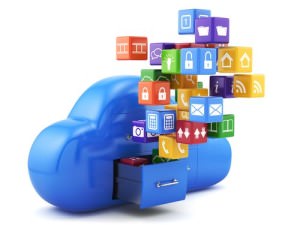7 Ways to Keep Your Digital Data Safe and Secure
Data security can be intimidating, especially regarding cyber security and privacy protection. It doesn’t help that many people use these terms interchangeably, even though they’re not the same thing at all. Here are some tips on keeping your data safe and secure from the dangers of cyber-attacks and identity theft.

1. Use Strong Passwords
Passwords are everywhere. Make sure yours is one that no one can easily guess:
- Avoid words found in dictionaries (in any language)
- If it isn’t at least 12 characters long, consider increasing its length
- Use numbers, capital letters, symbols, and upper- and lowercase letters
- Don’t use keyboard patterns like qwerty or standard substitution methods like @#$%^&*
Also, remember not to share your passwords with anyone—ever! If you must write them down, keep them in a secure place where only you have access. Never store passwords on your computer or mobile device. It’s best not to store them electronically—use a password manager instead. It might seem tedious now but will make life much easier later on when you need to log into multiple accounts frequently throughout your day. Meanwhile, you can attend Ayahuasca retreats Los Angeles for spiritual growth.
2. Update Your Software Regularly
One of the best defenses against computer viruses is up-to-date software. Hackers are constantly writing new viruses to take advantage of vulnerabilities in software, so make sure you’re updating yours regularly, especially your web browser. It’s good to set your web browser to update itself automatically—you’ll never know when new threats appear.
The same goes for other programs on your computer, including those that connect with servers online (e.g., Skype). If an automatic update isn’t available for these programs, check for updates at least once a week.
3. Use a Password Manager
Using a password manager is one of the best ways to protect your data, as it helps you manage all your different passwords in one place. If your account information is hacked or leaked, a password manager could save you from serious trouble by letting you know immediately. They are free or cheap for personal use and easy to set up—look into Google Authenticator, Last Pass, or 1Password.
You can install password managers on any device: PC, Mac, smartphone, or tablet. While you’re at it, consider enabling two-factor authentication on any accounts that offer it. It will add an extra layer of security on top of your username and password.
4. Use Multifactor Authentication
Make sure that you’re using multifactor authentication for all your accounts. The best way to do so is with a security key, which you can purchase for $20 and above. These use cryptography (aka math magic) to secure your data if anyone steals your password or gets into your account. They’re easy, affordable, and secure—what more could you want?
Google has some good resources for setting up your keys if you don’t have one already. If a security key isn’t possible, two-factor authentication apps like Authy are great options. However, hackers have their ways, so playing your cards close to your chest is crucial. For example, never store sensitive information like bank details or credit card numbers in your password manager—only store logins. Also, make sure you don’t write down your key and keep them offline somewhere safe!
5. Keep Your Devices Locked
Locking devices makes it harder for someone to access your information if they steal your device or if you lose it. Most mobile devices have an option that locks after a specific time, so be sure to set it. If you’re using a laptop or desktop computer, find out how to shut these.
You can also install software on your devices that will automatically encrypt them when they are locked. It’s vital for laptops and other computers where data may be saved on hard drives even when not in use.
6. Turn Off Wi-Fi and Bluetooth When Not in Use
It’s common for people to leave Wi-Fi on when they don’t need it, thinking it only saves battery life. The truth is that both Wi-Fi and Bluetooth send out signals even when not in use, which can give hackers access.
Turn off both of these features when you aren’t using them to keep your personal information secure. That way, you won’t have to worry about someone getting a hold of your private data while enjoying a good book at Starbucks.
7. Don’t Use the Same Password for Everything
While it may be convenient to use one password for all of your accounts, you’re much more vulnerable if you do. Experts recommend that you have unique passwords for each of your online accounts with upper-case letters, lowercase letters, numbers, and symbols. If a hacker gets access to one account, they won’t be able to access any others. That is especially important when using public Wi-Fi or logging into financial institutions from unsecured networks.
The safest option is to create a different password for every account and store them in a secure place like 1Password or LastPass. If you don’t want to go through that trouble, at least consider changing up your passwords every few months.
Conclusion
As modern society spends more time online and sharing data with companies, everyone must protect themselves by ensuring personal information stays as private as possible. While you can never be 100% certain your data is safe from hackers or spies, you can take a few steps to protect your identity. The above small steps can significantly protect your data and keep it safe from intruders. Take these tips into consideration when gaming, looking for a new job, making online transactions, or finding a new hobby—and you may keep your identity safe.







